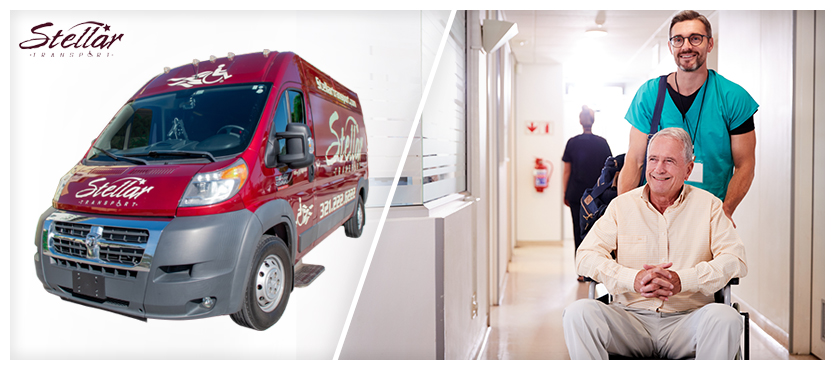After a major surgery or lengthy stay at the hospital, the last thing most of us want to deal with is any kind of complications or difficulties on the way home. When you are tired, feeling ill, or are otherwise just not in the best shape post-hospital discharge, it is best to prepare adequately beforehand to minimize complications and physical strain to ensure you are discharged from the hospital smoothly and safely.
Whether it is you or your loved one, coming prepared with a detailed plan can make a huge difference. That is why you should consider the following suggestions for arranging a smooth hospital discharge.
Seek Assistance
Before leaving the hospital, you must develop a plan to ensure a smooth transition. If you are not sure where to begin or would like some assistance planning, you should consider speaking with the hospital’s staff, nurses, social workers and others to see what kind of recommendations or suggestions they may have.
It is often best to involve at least one medical professional through the discharge process, especially if there are severe medical complications or physical impairments present that can make things challenging to arrange for.
Check Access Points
As you develop your discharge plan, another key element should be to check for all of the access points depending on you or your loved one’s needs. Ensuring a wheelchair or walker is present and readily available can be a good start. Following that, you should check for any ramps or handrails that are present and plan your route around them should they be necessary. Knowing where the best access points are and having the appropriate tools will make a major difference and help have a smooth discharge as quickly as possible.
Communication
Most visits and stays at the hospital involve working with multiple people, which is why it is essential that you have open communication and access to the right channels. It is advisable to consult hospital staff about your plans—both present and future—so that they can help you and make any suggestions as necessary.
Even after discharge from the hospital, staying in touch with the hospital can help make sure you or your loved one’s needs are met, or if any complications and concerns arise in the future, you have a channel to seek help or advice from should it be necessary.
Post Discharge Activities & Signs to Watch For
Every patient’s needs are different. If you or your loved one is about to be discharged from the hospital, it would be wise to consult with hospital staff on what activities are not advisable after discharge. The last thing you want is to engage in an activity that you really should not and end up having to return to the hospital once again.
Getting a clear idea of what your body can or cannot handle will allow you to live your life to the fullest upon returning home from the hospital. Furthermore, consider asking for any symptoms or signs to keep an eye out for. That way, you can identify any complications early on and return before they worsen.
Transportation
The final step to ensuring a smooth transition from the hospital back to home is to ensure your transportation is in order. For patients with severe medical conditions or physical impairments, riding in a normal passenger vehicle could be an uncomfortable and unsuitable option.
For such cases, Non-Emergency Medical Transportation (NEMT) might be the best choice. NEMT drivers have medical training and certification to assist patients and seniors, while their vehicles can accommodate a variety of medical needs. If you think your loved one needs specialized care or equipment during transit, consider scheduling a ride with a NEMT provider.
Stellar Transport offers NEMT services for patients and seniors who need medical care and attention during transit or cannot otherwise use standard public or private transportation. For a smooth discharge from the hospital to home, consider booking a NEMT service with Stellar Transport.

